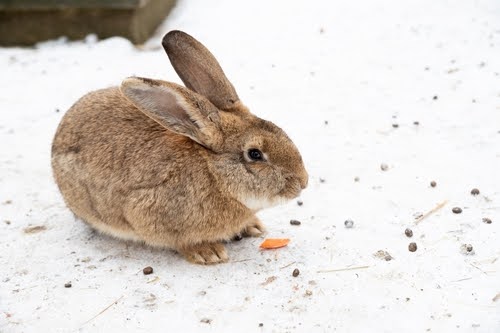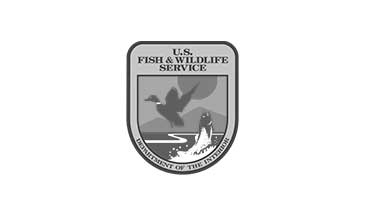Raccoons are opportunistic foragers, especially in winter. They want (a lot of) food that’s easy to find. Although they spend most of the winter hunkered down in their dens, they do emerge often to forage for food and drink water.
Raccoons can still cause problems for you and your property during the colder months. The best way to make sure raccoons don’t wreak havoc on your home this winter is to figure out what they want and make sure you’re not offering it to them.
.png?r=A7UNpkEyhI8=)
Raccoons in the Winter
Here’s your guide to raccoon behavior in the winter:
Do Raccoons Hibernate in the Winter?
No, it’s a common myth that raccoons hibernate. They cannot enter “true” hibernation. Instead, they enter a prolonged state of inactivity called “torpor.” Raccoons enter torpor when the average temperature drops below 15 °F. While in this state, raccoons can sleep for weeks at a time, relying on accumulated fat stores for calories.
Are Raccoons in “Torpor” All Winter Long?
Torpor does not get raccoons through an entire winter. They still have to wake up to forage for food, restore body heat, and drink water. If they wait too long to replenish their fat stores, they could lose up to 50% of their body weight during winter.
When Do Raccoons Come Out?
While there’s no “hibernation” for raccoons to come out of, raccoon activity increases in the late winter and early spring as temperatures warm and their mating season begins. On a day-to-day basis, raccoons are active overnight, from sunset to sunrise.
Where Do Raccoons “Live” During the Winter?
Raccoons are very adaptable, which is part of the reason they are so widespread. They can (and will) make their dens in nearly any kind of environment, including neighborhoods. A raccoon will commonly make its den site in natural, wind-breaking cover like logs, tree hollows, the underside of rocks, and other animals’ dugouts.

Raccoons are usually solitary animals with home territories that they’ll defend from other raccoons. However, during winter, several raccoons may den together in order to conserve body heat. This is when you may find them under your deck, porch, or shed.
What Do Raccoons Eat in the Winter?
Raccoons are not picky. They will eat whatever they can get their paws on. Their adaptability largely stems from the fact that they’re very good at foraging for food. During the winter, their food sources become much more limited.
When raccoons come out of torpor, they’ll make do with nuts, seeds, plant stalks, berries, and leaves. They are also infamous dumpster divers, and that doesn’t change in the winter. The fewer food options a raccoon has, the more appealing your dumpsters will look, especially if it’s easy to crawl into. Raccoons may even sneak into your garage to access garbage.
Will Raccoons Mate During Winter?
Raccoon mating season depends on the environmental temperature and food availability, but it usually occurs early in the year. Raccoon mothers are pregnant for around nine weeks, which means birth usually occurs in spring.
CAUTION: Mother raccoons are fiercely protective of their offspring. They’re wild animals and behave much more aggressively than they would normally if they perceive you as a threat. Raccoons can transmit rabies through their bites, so they should be treated as potentially dangerous.
Why Are There Raccoons Near My Home?
Spotting raccoons near your home may not always indicate they have taken up residence on your property. Their search for food during the sparse winter months often leads them to venture further than usual. However, regular sightings in your yard suggest they might have established a nearby den.
These raccoons are likely attracted by the availability of food or shelter in the vicinity. Be vigilant for signs of raccoon-friendly conditions, such as fallen fruits, leaves, nuts, pet food, or accessible garbage. Any of these can be an open invitation to these opportunistic foragers, drawing them closer to your living space.

What Should I Do About Raccoons Near My House in Winter?
The best way to keep raccoons away from your home is to restrict access to your garbage. Here’s how:
- Don’t keep your garbage outside
- If you must have garbage outside, keep it in sealable plastic bags
- Take garbage directly to your dumpster and tie your dumpster closed whenever you’re not using it
- Rinse out the bottom of your dumpster every couple of months
You can’t keep raccoons from finding any food or shelter near you, but you can block off the “obvious” stuff:
- Use subterranean wire mesh fencing to cut off entry points in the underside of your porch and deck
- Pick up fallen fruits, nuts, and seeds as frequently as possible
- Take down your bird feeder during the winter
Make your yard as unappealing as possible, and raccoons will seek their food and shelter elsewhere.

Keep Your Yard Free of Nature's Bandits with Professional Raccoon Removal
You don’t have to deal with a raccoon problem alone. Varment Guard can remove raccoons quickly and efficiently. Our team of wildlife control experts have the knowledge and tools to provide trapping and removal, exclusion and prevention, and raccoon damage repair. Ready to get started? Contact Varment Guard for help.







